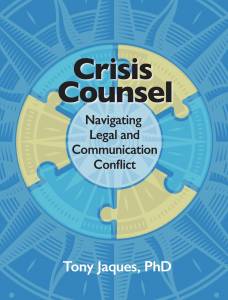TikTok and Reputation Management: Has time run out for big newspaper ads in a crisis?
By Tony Jaques
Facing a reputational crisis about online security and alleged international surveillance, Chinese-owned TikTok recently placed full-page ads in Australian newspapers, pleading not to become a “political football.” But outside the media bubble, did anybody pay attention? Or was it just an outdated response with no real value in terms of effective crisis management? Let’s find out more about TikTok and reputation management
With its continued operation under threat in some countries, the popular video-sharing platform is fighting back. In the United States, for example, it was reported that TikTok had enlisted “a small army of lobbyists” desperately trying to convince lawmakers and administration officials that its allegiance lies with the United States, not China.
The New York Times said the company, which one year ago had virtually no lobbying presence in Washington, has hired more than 35 lobbyists to work on its behalf, including one with deep ties to President Trump.
In Australia the response was a multi-pronged strategy involving letters to Federal politicians, a media “charm offensive” and – crucially – a full page advertisement placed in newspapers across the country claiming TikTok is “Fun, Safe and Independent” and begging “Please don’t make us a political football.”
Lobbying politicians and talking to the media is standard fare, but the question is whether old-school newspaper issue advertising has any place in the modern digital world.
Late last year Westpac took out full-page newspaper ads to apologise for unreported foreign funds transfers which may have helped facilitate child exploitation. While a year earlier the CEO of another major bank, NAB, published a hand-signed letter in major newspapers promising to “make things right” after a server error left thousands of businesses unable to operate.
Although such advertisements might attract momentary media attention, there is little evidence that they generally change opinion in any meaningful way. And they can easily divert resources and distract from the main game, as shown by the reputation of the banking industry remaining as dire as ever.
One notable exception is the cheeky ad placed by KFC in Britain when a logistics failure left hundreds of stores with no chickens. Their full-page apology ad, which featured an empty chicken bucket with the company’s logo rearranged as FCK, attracted attention around the world. It will doubtless be a case study in crisis management and marketing classes for years to come, which is more than can be said for the stolid apology letters from the bank CEOs.
The other question to be asked is whether the rise of social media has had any impact on the apparent belief in the effectiveness of traditional newspaper advertising to get a message across. It’s perhaps ironic that Facebook CEO Mark Zuckerberg, who controls one of the world’s most influential and persuasive social media platforms, chose a full-page letter published in newspapers to promise consumers the company would “do better for you” in the wake the Cambridge Analytica data privacy scandal.
TikTok’s Similar Approach To Reputation Management
Similarly, TikTok, a social media platform with a reported two billion downloads worldwide, and an estimated 1.5 million Australian users, followed the same traditional media approach.
It seems clear that a large-format print advertisement in a newspaper is still regarded – without much evidence – as credible and trustworthy and offering a permanent record which might cut through online clutter. Alternatively, it could simply be one of those “need to be seen to be doing something” knee-jerk responses which still find favour in some Boardrooms. Or perhaps it’s just an old-fashioned idea whose time has run out.
Or maybe, as my friend and crisis management colleague Gerry McCusker told Crikey: “It’s better than doing nothing . . . but not by a massive amount.”
A Parting Thought
A company’s reputation is its largest uninsured asset.
– Bruce Hennes
Tony Jaques is Director of Issue Outcomes Pty Ltd, for people who work in issue and crisis management.

